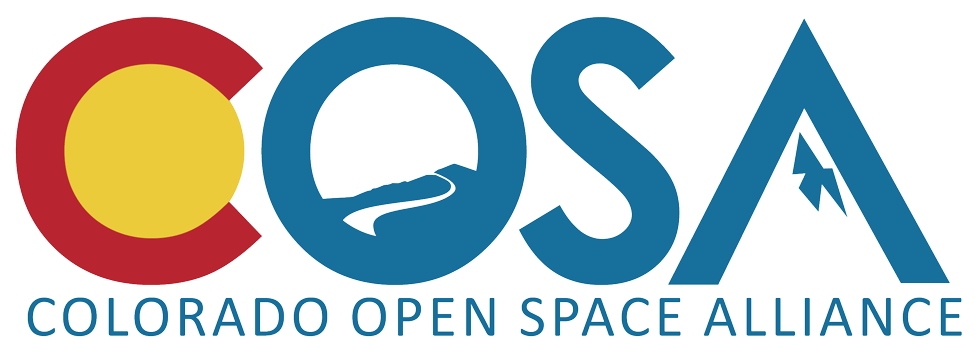NEWS Monday, Jan. 6, 2020
Phillip Yates, Media Relations, 303-349-2438
Bryan Rachal, Media Relations, 303-441-3155
City seeks input on potential approach and actions to manage irrigable agricultural areas with a high abundance of prairie dogs
BOULDER, Colo. – The City of Boulder’s Open Space and Mountain Parks (OSMP) Department is seeking public feedback on a draft approach and an evaluation of potential actions to manage irrigable agricultural land with large populations of prairie dogs.
OSMP’s identification of a draft approach and its evaluation of potential actions is a response to direction from the Boulder City Council, following a recommendation from the Open Space Board of Trustees (OSBT) last spring, to undertake an expedited public process to look at agricultural uses on the city’s northern grasslands. Potential management actions evaluated include ways to help foster soil health and carbon sequestration and options for both non-lethal and lethal control measures.
The city welcomes public feedback on the draft approach and the evaluation of potential actions online at until 5 p.m., Sunday, Feb. 16. Community members are invited to the OSMP Hub at 2520 55th St. from 5 to 7 p.m., Monday, Jan. 27, and 2 to 4 p.m., Tuesday, Feb. 4, if they need assistance in using the city’s online input tool.
City policies plans and ordinances have prioritized non-lethal control measures and have sought to protect prairie dogs and their habitats because they are important in helping to maintain healthy ecosystems. However, monitoring has indicated that OSMP irrigable agricultural lands currently have the highest levels of prairie dog occupation they have seen since the department began prairie dog mapping in 1996.
Such high abundance of prairie dogs on irrigable lands north of Boulder makes it difficult for OSMP and farmers and ranchers to fulfill agricultural-related open space purposes in the city charter and to implement soil carbon farming and climate mitigation practices. Elected and appointed leaders, in their direction to staff last May, indicated that it may be infeasible to address large prairie dog populations on agricultural lands in a timely or economical fashion by current non-lethal practices alone. Currently, the city has 967 acres of irrigable agricultural land that is occupied by prairie dogs, but it can only accommodate the relocation of about 40 acres of prairie dog colonies each year because of costs, contractor availability and permitting requirements.
The preliminary potential management actions evaluated as part of this public process focus on these management categories:
- Removal: Evaluated actions include non-lethal control measures the city currently prioritizes, such as relocations, as well as lethal control options.
- Non-lethal control measures evaluated include contraceptives to limit population growth, trapping and relocating prairie dogs and conducting passive relocation, which encourages prairie dogs to leave their burrows at the expanding edge of a colony and directs them away from areas of potential conflict by blocking re-entry to burrows.
- Lethal control measures examined include using carbon monoxide and/or pressurized exhaust in burrows, trapping prairie dogs and donating them to black-footed ferret facilities, introducing black-footed ferrets on open space lands and limiting the use of anti-plague vaccines.
- Exclusion: Evaluated actions include ways to prevent prairie dogs from entering or returning to irrigable OSMP lands once removed. They include fabric, metal and wire mesh barriers or native plantings.
- Restoration: Evaluated actions include restoring lands that were occupied by a high abundance of prairie dogs. They include closing vacant burrows, irrigating lands, performing carbon sequestration and soil health techniques to improve land fertility and revegetating disturbed areas.
- Potential plan and policy changes: Evaluated actions includeconsidering changing OSMP agricultural agreements with farmers and ranchers, modifying city regulations to allow burrow destruction from normal agricultural activities on irrigable lands and modifying lethal control regulations for irrigable lands.
Comments received through Tuesday, Feb. 4, will be provided to the Open Space Board of Trustees (OSBT) in advance of a study session Wednesday, Feb. 12, when board members will discuss staff’s potential strategies and actions. Community members are welcome to provide comments to the OSBT during a public comment period before the Wednesday, Feb. 12, study session. Staff will then use community input and OSBT feedback on the draft approach and evaluated actions to develop final recommendations, which the department expects to present to the OSBT during a public hearing in March.
For more information, please visit the project website at or call OSMP at 303-441-3440.


